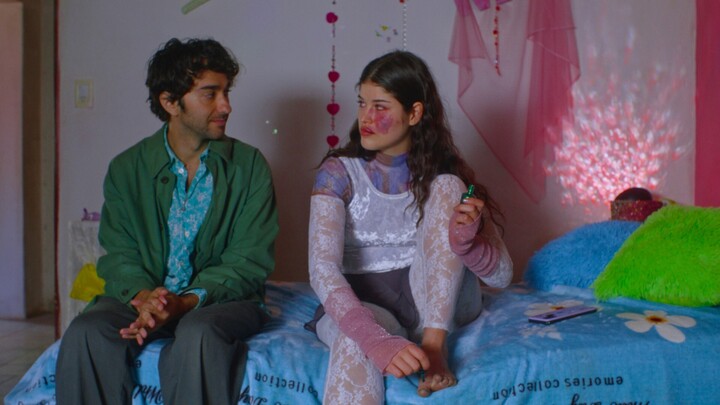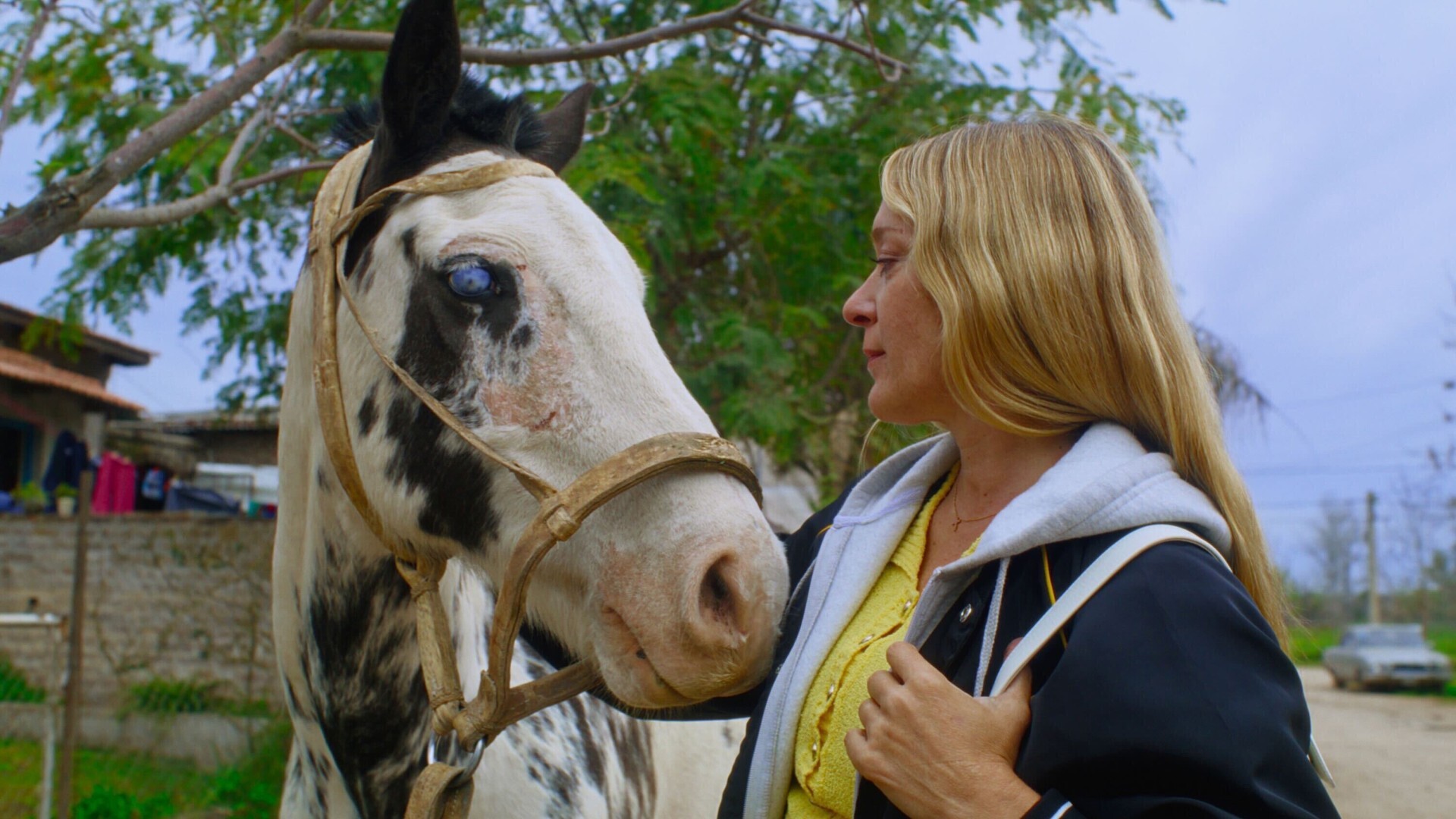Director: Amalia Ulman
Writer: Amalia Ulman
Stars: Joe Apollonio, Camila del Campo, Guillermo Jacubowicz
Synopsis: A media crew mistakenly ends up in the wrong country while trying to profile a musician. As they collaborate with locals to create a viral trend, relationships form amid an unfolding health crisis.
Argentine-Spanish filmmaker Amalia Ulman made a name for herself in the independent film scene and film festival circuit with her feature-length debut, El Planeta. Drawing from the aesthetic of ’80s indie flicks and Noah Baumbach’s writing—especially Frances Ha—Ulman explores Spain’s economic crisis through two women navigating a faux high-end lifestyle. Their experiences are conveyed through absurdist and darkly comedic dialogue set pieces. Ulman has used that tone as her trademark or calling card for her directorial and writing voice. And she ups the ante in her sophomore feature, Magic Farm, to the point where Ulman unfortunately loses the personal element and smartly witty quips that her debut contained.
Magic Farm follows a film crew that works for a Vice or MTV News-like, edgy, teen-oriented media company called Creative Lab Network, in search of a musician named Super Carlitos, an internet sensation who performs with bunny ears, with a fascinating background worthy of a profile. The crew consists of a ragtag team of scandalous, narcissistic characters that are heightened portrayals of dysfunctional journalists during travel expeditions. There’s the tired, annoyed boss Edna (Chloë Sevigny), her boyfriend and manager Dave (Simon Rex), lover boy Jeff (Alex Wolff), blank canvas Justin (Joe Apollonio), and the camera operator who has secrets of her own, Elena (Ulman).
As a team, they don’t function properly; individually, they are even worse. They are so unfit for their roles and duties that it is hard to believe they have a functioning media company. In their latest assignment, during the search for Super Carlitos and his fascinating grooves, the team heads to San Cristobal, Argentina, for a chance to interview him and the locals who have championed the local musician. However, as expected from their inability to make anything work out, they manage to book a flight to the wrong San Cristobal. Edna bears a headache from the strenuous, constant mistakes, especially when it matters most. Since they are already there, Edna and company decide to talk to the townsfolk in search of another worthy story for a piece.
They seek outrageous stories, focusing on the town’s “weirdness” rather than its authenticity. Most interviews reveal the governmental injustices affecting San Cristobal, as well as the effects of agrochemicals that corporate businesses pollute the city with. As expected, none of them is the least bit interested. Elena is the only one who pays attention to the locals’ worries, being the only morally bound character in the film. Ulman provides a path for her characters to grow and become more empathetic towards the locals later in the narrative, as the conversations become more personal and the crew reaches a level of understanding. However, for the most part, these characters are absent-minded and out of touch with reality.
Their scopes are limited to the experiences they undergo in their supposed high-class lifestyle back home—a theme that Ulman utilizes once again for her sophomore feature. And that thin layered satirization of the characters causes the film to feel weightless in most of its runtime. Ulman places them in unfamiliar territories, where they must interact with their surroundings and the townsfolk to uncover a story worthy of telling. Their ignorance gets the best of them, causing them to dismiss everything except their well-being. There are many stories ready to be told to the world, and yet these opportunistic “journalists” ignore them for ones that deliver more traction.
In the case of those on Magic Farm, they are there to exploit the people they deem “weird” for clicks and likes, to be the first to hop on the trend train. While the film nods to decades of exploitative journalism, it often sacrifices realism for exaggerated, comedic beats. However, only one sequence reflects that theme in a more nuanced manner. Elena points out that the crew is taking advantage of the people they cover on their profiles and pieces. She is then told that, if she feels that way, she has picked the wrong profession and company to be in. The rest of the film is more heightened and comedy-dependent, lacking the subtlety that not only that key scene has, but also Ulman’s debut contained.
In El Planeta, Ulman focused on making her characters feel grounded, relatable, and multilayered as they went through the ups and downs of their economic struggles, seen via comedic, sometimes too fictional scenarios, inspired by the New Wave and Noah Baumbach, whose early work served as the voice for the lost, mid-20s adults that have trouble speaking their minds and spilling their emotional guts. (Much like Ulman, who takes that aspect and transcribes it for a contemporary audience, brilliantly so.) Meanwhile, Magic Farm has characters who are difficult to sympathize with due to their constant frivolity. You don’t want to be near them or hear them; they become annoyances for the film rather than characters that elevate the story and its satirical viewpoint of faux journalism and modern-day content creator culture.
The only character that you want to hear more from is Elena; Ulman herself explores the thematic thread without the help of her cast of unmerry journalists. Elena is the vessel of morality and integrity, from which the crew slowly and gradually learns. However, her character is sidelined, with the key focus shifting to Edna, Jeff, and Justin, who are less interesting and become tiresome. There is a fascinating thematic thread within the care of Magic Farm regarding the blinded media and their ignorant actions when covering struggling communities. Unfortunately, it all gets lost in the work’s comedic pandering and the disparity between the various plot lines. Magic Farm aims for sharp satire but falls short, settling instead for caricature. Ulman’s gift lies in empathy and intimacy—when those are lost, so is her voice.







